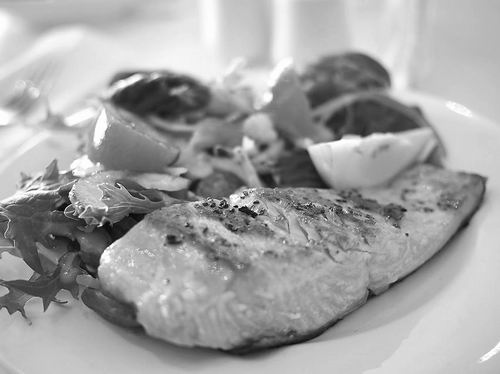

Choline deficiency has also been linked to profound changes in the brain associated with Alzheimer's disease. Image source: pixabay
Choline is a small but essential nutrient produced in the liver and is an important component in maintaining human health. It's found in foods like eggs, broccoli, beans, meat, and poultry. A study published Jan. 15 in Aging Cell has found that a lack of dietary choline can adversely affect the body, which may be the missing piece of the Alzheimer's puzzle.
Studies in mice now show that a lack of choline in the diet can have serious negative effects on the heart, liver and other organs. In fact, choline deficiency has also been linked to profound changes in the brain associated with Alzheimer's disease.
The study, led by scientists in the US, describes the pathology in normal mice whose diets are deficient in choline and in mice genetically modified to be deficient in choline. They all showed symptoms of Alzheimer's disease. Both conditions resulted in liver damage, enlarged hearts and neurological changes in the mice that often accompany Alzheimer's disease.
The study also involved a detailed characterization of the proteins in the mouse hippocampus and those detected in the blood. Dietary choline deficiency alters important hippocampal neural circuit networks in mice. The hippocampus is the area of the brain that is severely affected by Alzheimer's disease. Studies have also shown that choline deficiency in mice leads to significant weight gain, altered glucose metabolism (associated with diseases such as diabetes), and deficits in motor skills.
"For humans, it's a double problem," said lead author Ramon Velazquez, an assistant professor at Arizona State University.
Choline is necessary for the production of acetylcholine, a neurotransmitter that plays an important role in memory, muscle control and mood. Choline also builds cell membranes and helps regulate gene expression.
This research highlights a series of physiological and neural changes associated with choline deficiency. Adequate choline in the diet reduces levels of an amino acid called homocysteine, which is thought to be a neurotoxin that causes neurodegeneration and is important for the regulation of functions such as learning and memory.
Emerging evidence suggests that recommended dietary choline intakes for adult women (425 mg per day) and adult men (550 mg per day) may not meet brain health and cognitive needs. Additionally, about 90 percent of Americans do not meet recommended levels and may not even be aware of their daily need for choline.
"First, people are not meeting the daily choline intake recommended by the Institute of Medicine in 1998. Second, there is a wealth of literature showing that the recommended daily intake is suboptimal for brain-related functions," Velazquez said. .
Recognizing the importance of choline, all adults should be encouraged to ensure adequate choline intake, especially those following a predominantly plant-based diet. Choline-rich foods are eggs, meat, and poultry , so they may be lower in natural choline intake.
Choline-rich plant foods, such as soybeans, Brussels sprouts, and toast , also help increase choline. In addition, inexpensive over-the-counter choline supplements should be encouraged to ensure overall systemic health and protect the brain from neurodegenerative diseases.
"This multi-institutional study investigated the molecular processes of aging at a systemic level and provided substantial evidence for the importance of choline intake in healthy aging," said Nikhil Dave, co-author of the paper.
Related paper information: https://doi.org/10.1111/acel.13775
(Original title "Are You Getting Enough Choline Daily?")
